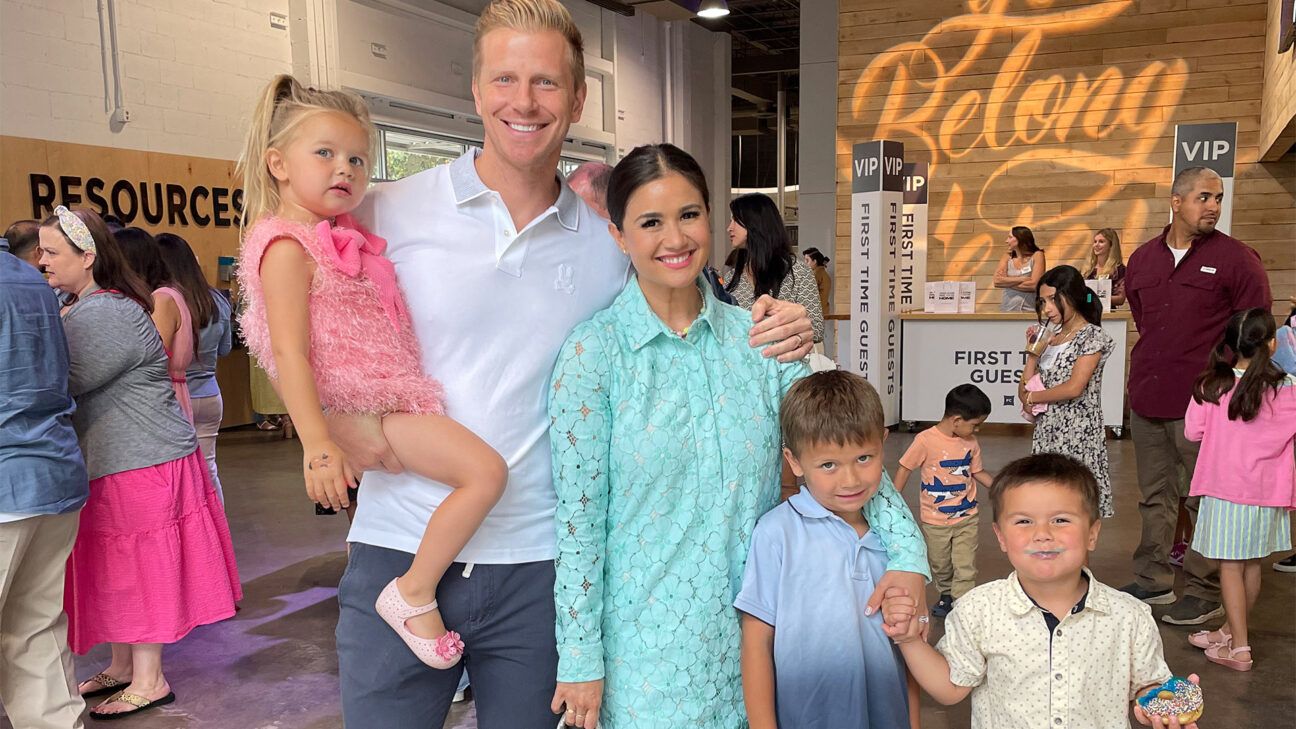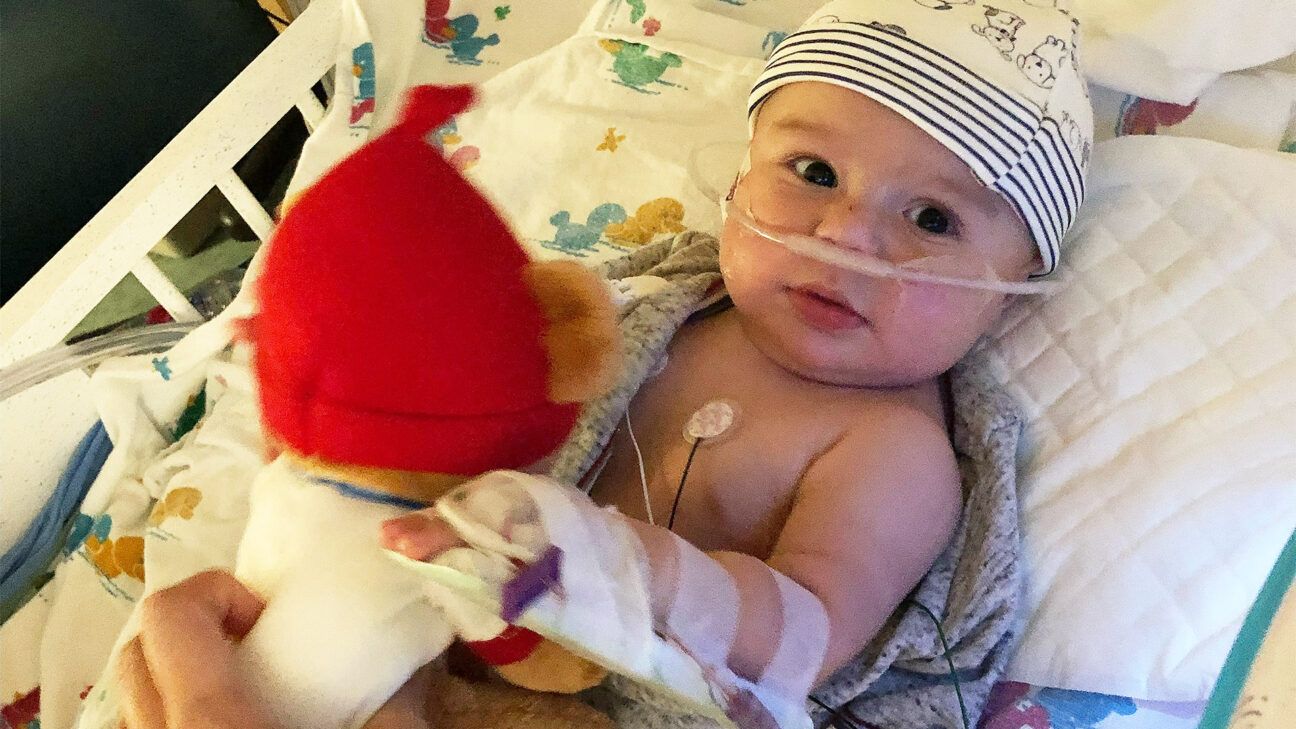
In November 2018, Catherine Giudici Lowe and Sean Lowe (one of the fan-favorite couples from the hit reality TV series “The Bachelor”) experienced a parental nightmare.
Their five-month-old son, Isaiah, came down with what they thought was a mild cold but ended up being something much worse.
“My husband took him to the pediatrician just to check, and in that moment he was directed to go straight to the ER and [the doctor] said ‘it might be RSV,’ ” Giudici Lowe told Healthline.
Isaiah spent the following four nights in the pediatric intensive care unit, which Giudici Lowe described as a “traumatic” experience.
“You’re used to holding your baby — I’m breast feeding at the time and I’m holding him all the time — and now you’re looking at your baby on the bed with tubes coming out and it’s just a really scary time for a parent especially one of that age that is so young and tiny and vulnerable,” she said.
Isaiah’s experience with respiratory syncytial virus (RSV) isn’t rare. In fact, it’s the number-one cause of hospitalizations for babies, and it’s something Giudici Lowe said she didn’t know much about before her family’s experience.
Now, she’s using her platform to raise awareness.
She’s currently partnering with Pfizer to encourage more people who are pregnant or planning to become pregnant to speak with their OB-GYNs early on about the potential risks of RSV and how they can best protect their babies.
“I’m just so glad to come out on the other end of it to explain and share my story with other moms,” she said.

Isaiah had a case of bronchiolitis, a lung infection in children and infants that is commonly caused by RSV. It involves the accumulation of mucus that fills the lung’s airways, causing irritation and inflammation.
Anywhere between 58,000 to 80,000 children 5 years old and younger are hospitalized due to an RSV infection in the United States in any given year,
Those young children at greatest risk include premature babies, those up to 12 months old (particularly 6 months and younger) children under 2 with chronic lung disease or congenital heart disease, those with weakened immune systems, and kids with neuromuscular disorders who may have trouble clearing away mucus and swallowing.
Dr. Frank Esper, a pediatric infectious diseases specialist at Cleveland Clinic Children’s, told Healthline that stories like Isaiah’s are an annual concern.
Esper, who is unaffiliated with Pfizer, said that, from the pediatrician’s standpoint, it’s “a gauntlet we run every winter.”
“We call it RSV season, and the only time we didn’t have it is when everyone was locked down during COVID-19, but pretty much every year, without fail, we have a huge peak of RSV and it really goes through the pediatric population very very quickly,” Esper explained. “Almost every child, by the time they are 5 years of age, has RSV.”
Last year, for instance, was pretty bad. Many hospitals in the U.S. ran out of beds for children due to the fact that there were so many simultaneous cases nationwide.
Esper said that RSV symptoms often appear similarly to other respiratory viruses at first, beginning with a runny nose and cough. From there, symptoms get worse.
He added that more serious RSV symptoms can include fever and, oftentimes with small babies, the virus gets down into the lungs, resulting in bronchiolitis, as it did for Giudici Lowe’s son.
Esper stressed that “the younger the child, the worse the disease,” can be.
By the time they’re around 4 or 5 years old, their immune system is a little stronger and primed to handle infections better than infants.
For babies who are under 6 months old, he said it’s hard for them not to be “clogged up,” something that is even worse for infants who have lung problems and for those born premature.
Oftentimes, this coincides with children who have heart problems, given that “the heart and the lungs work together, if you hurt one, you hurt them both,” Esper said.
When it comes to misconceptions around RSV, Esper wanted to hammer home that people often lump it in with discussions around “cold and flu season.”
He said it’s important to note that “not all colds and flus are created equal.” RSV is “one of the worst viruses out there, following the flu, following COVID,” and it’s crucial to center it as a specific and serious health concern.
Also, while this discussion is often centered on pediatric cases, this is a virus that can affect adults too.
Esper said that adults with underlying heart and lung problems are at risk of getting extremely sick from the virus. It’s especially a concern for older adults.
The American Lung Association reveals that an estimated 60,000 to 120,000 older adults are hospitalized from RSV each year and an estimated 6,000 to 10,000 die from it annually.
Esper contextualized that not all viruses show up at the same time. There are different peaks and valleys throughout the year for each one and being aware of when and what to watch out for can make a big difference.
Giudici Lowe cited Pfizer’s BeAwareofRSV.com website as one helpful resource she’s used for more information on RSV.
Esper said that 2023 has “almost been a renaissance year” for RSV prevention and treatment options.
We now have vaccinations that work against the virus and better medications that can help prevent the virus.
He pointed to
Esper said one big misconception out right now is that people think this is a vaccine, which might make some people leery of seeking it out for their infants.
“Basically, it provides a bunch of antibodies that protect the baby from RSV,” he stressed. “The recommendation is every child under 8 months of age gets this special antibody to protect them when they’re born or going into RSV season. Any newborn now is eligible to get this [injection].”
He did add that there isn’t enough production of this medicine this year to reach the 4 million children born annually in the U.S. Right now, the focus is on “the highest risk patients,” but he anticipates production to be ramped up for this new immunization for the 2024 season.
“Also, adult immunizations just came out this year as part of the ‘renaissance.’ One of those vaccines we give to pregnant moms — not just to protect the mom against RSV, but to protect the child,” Esper added.
The American Congress of Obstetricians and Gynecologists offers the recommendation that people receive the vaccine Abrysvo if they are 32 to 36 weeks pregnant from the months September to January.
They state that this vaccine will pass on antibodies to the fetus, meaning newborns will have some protection from the respiratory virus for their first six months.
Today, Isaiah is doing just fine, happy and healthy at home with his parents, big brother, and little sister, Mia.
It’s a big contrast from that scary time five years ago, when Giudici Lowe said she and her husband were trading off shifts at the ICU.
Looking back on her experience with RSV she said she just wants to urge other parents to speak with their healthcare professional about the risks that can come from this virus and to seek help immediately when symptoms first appear.
“Going the extra mile to see the pediatrician is a smart choice — even if it is just a cold,” Giudici Lowe stressed.
